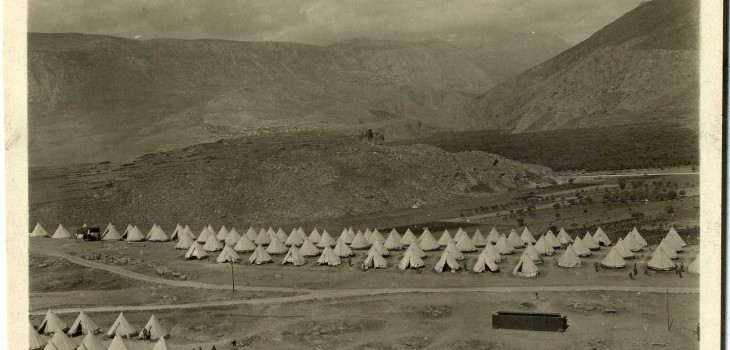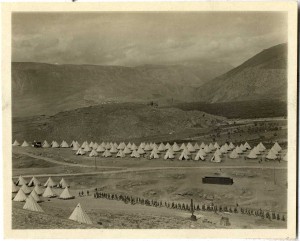After a summer break, the Improving Health in Wartime seminar series starts again on Tuesday 9 September with a lunchtime and evening session. This series has been designed to complement the Improving Health in Wartime exhibition currently on display in the Keppel Street foyer and which shows how tropical medicine and public health professionals have worked to improve health in areas of conflict since the First World War.
Details of the seminars are as follows:
The First World War and drug and alcohol control, Virginia Berridge, LSHTM, 12.45pm – 1.45pm, Tuesday 9 September, Manson Lecture Theatre, LSHTM.
It is often forgotten that the First World War was a key formative period for both drug and alcohol control. The international drug control system which still operates today came about because of the war. The war also saw restrictions placed on drinking in the UK and elsewhere which had a significant impact on drinking cultures. This talk will examine those initiatives from the standpoint of their present day legacies.
Registration is required, please go to: http://lshtm-drug-alcohol-control.eventbrite.co.uk
‘It was very hot, and I nearly melted in a tweed costume’: Colonial Nursing and Conflicts in Hot Climates, Rosemary Wall, University of Hull, 6.00pm – 7.00pm, Tuesday 9 September, Manson Lecture Theatre, LSHTM.
The connections between British colonial nursing and conflicts in hot climates from Africa and the Middle East to the Pacific Rim will be explored within this talk. Nurses’ experiences will be explored for the period between the First World War and the 1940s and 1950s, particularly examining the role of nurses during the Malayan Emergency (1948-1960) and the eventual evacuation of British nurses from Palestine (1948) and Shanghai (1951).
Registration is required, please go to: http://lshtm-colonial-nursing.eventbrite.co.uk
What did ‘The Great War’ do for Public Health? Rosalind Stanwell-Smith, Hon. Senior Lecturer, Centre for History in Public Health, 5.30pm – 6.30pm, Monday 15 September, John Snow Lecture Theatre, LSHTM.
Histories of public health tend to date our modern practice to the reorganization of national and international systems following World War II. But this was only possible because of the lessons learned in previous wars, in particular the global impact of WWI. The tragic experiences of this ‘war to end all wars’ provided a major impetus to improved welfare and housing and to increasing involvement of the State in managing population health. It’s no accident that public health and military share a common vocabulary, such as campaigns, officers, surveillance, strategies – and the occasional victory. The personnel in both fields share a respect for protocols and hierarchical service – also the application of new technology. For WWI, this included rapid communications via field telephones, mobile triage and treatment units, improved water and sanitation, blood transfusion, immunisation and more efficient, although not always effective, methods of controlling the spread of infectious disease. Use of media for health promotion became widespread – and there was also the social effect of the high death toll, first use of rationing for food shortages, the increasing role of women in the workforce and a focus on the health of children and factory workers. Some of the lessons were too painful to be analysed at the time, for example the inability to control the influenza pandemic of 1918-19, because they did not fit with the rhetoric of an ever more triumphant application of public health to disease and wellbeing.
Packed with images and highlights from the military and civilian front, this lecture aims to show how contemporary public health has echoes both of the gained knowledge of this eventful period, as well as its lost innocence.
Registration is required, please go to: http://great-war-public-health.eventbrite.co.uk
Lives, Laboratories and the Great War: Careers and research in pathology and bacteriology, 1914 and beyond by Anne Hardy, LSHTM, 6.00pm – 7.00pm, Thursday 18 September, Manson Lecture Theatre, LSHTM.
This talk will look at the impact of the First World war on the lives and research careers of some members of the Lister Institute and the Pathological Society of Great Britain. It will reveal how careers and research trajectories were temporarily diverted by war, how some were changed forever, and how some if not all of the knowledge acquired as part of the war effort developed into outcomes with solid benefits for human health.
Registration is required, please go to: http://lshtm-labs-greatwar.eventbrite.co.uk
The Civilian Disabled: War and its role in the disability rights movement by Gareth Millward, LSHTM, 12.45pm – 1.45pm, Friday 19 September, Manson Lecture Theatre, LSHTM.
When disabled people came together to form the Disablement Income Group in 1965, they demanded better services for “the civilian disabled”. This reflected the long-standing relationship between injured war veterans and disability policy in the United Kingdom. This talk begins to explain how, from the late nineteenth century, war and disability policy have been inextricably linked; and how this had knock-on effects for those who were not directly physically or mentally scarred by conflict.
This is a joint event between London School Library and Archives and the International Centre for Evidence in Disability.
Registration is required, please go to: http://lshtm-civilian-disabled.eventbrite.co.uk
Before and after Auschwitz by Eva Schloss, nee Geiringer, 5.30pm – 6.30pm, Wednesday 24 September, John Snow Lecture Theatre, LSHTM.
In March 1938 the Germans invaded Austria and young Eva Geiringer and her family became refugees. Like many Jews they fled to Amsterdam where they hid from the Nazis until they were betrayed and arrested in May 1944. Eva was fifteen years old when she was sent to Auschwitz — the same age as her friend Anne Frank.
Together with her mother she endured the daily degradation that robbed so many of their lives — including her father and brother. After the war her mother married Otto Frank, the only surviving member of the Frank family.
Only after forty years Eva was eventually able to tell her story, she will talk about her experiences in the camp and about her encounter with Mengele the camp “doctor”.
Registration is required, please go to: http://before-after-auschwitz.eventbrite.co.uk








